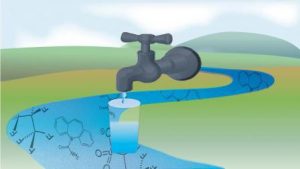Principal Water Contaminants That Affect The Productivity of Your Industrial Organization
Many industrial plants get their process water from the same places that municipalities get their drinking water: fresh surface water & fresh groundwater sources. Though water from these sources may need additional treatment before they are potable, this is not strictly necessary if used as industrial process water. However, certain naturally occurring minerals can harm process equipment.
Below are three principal water contaminants that can affect industrial productivity.
Hardness
The cations calcium and magnesium, as well as the anion sulfate, can occur naturally in water sources after leaching off minerals such as gypsum or dolomite. In many applications, this can cause hard scale buildups in pumps, pipes, boilers, and heat exchangers. Hardness buildup in process plants can cause clogging in pipes and pumps as well as reducing the efficiency of boilers and heat exchangers. If this occurs, pipes may need to be replaced and pumps, boilers and heat exchangers may need to be cleaned out or replaced. Clogged pipes can also affect process production by affecting the flow of fluids through pipes.
Hardness minerals can be removed via electrocoagulation. The charge of the ions are neutralized by supplying power to a set of anodes and cathodes, which oxidize and release ions into the solution. As the particles aggregate, they float to the top of the EC system via nano sized hydrogen bubbles.
Chloride
Chlorides naturally occur in the form of salts that can contaminate freshwater sources after dissolution from minerals or saltwater intrusion. These salts can cause significant corrosion in metal pipes due to the way it catalyzes the pitting process. If pipes corrode too much, they can form holes which will cause leaking. With chlorides in process water, pipes would need to be replaced far more often.
However, because they occur in salts, chlorides can be removed by reverse osmosis desalination as they are too large to pass through the membrane pores.
Silica
Silica is typically found in a colloidal form and is commonly present in sand. When it is found in feed water, it can cause deposits to build up on equipment such as boilers or cooling towers. In processes that use membrane filters, silica can foul and tear the membrane filters. In the right conditions, silica can also cause scaling in pipes. Silica can negatively affect system performance and cause plants to shut down. These plants would need to facilitate cleaning of cooling towers and boilers as well as replacing costly membranes due to silica issues.
In order to remove this Silica contaminant in industrial process water, an electrocoagulation system is an effective method for silica removal.
To be sure that contaminants such as these don’t cause similar issues for your plant operations, preventative steps would need to be taken. A treatment system using some of the removal methods mentioned above would be a smart investment. These systems would treat the raw source water, to prevent any damage to your process equipment. This would increase your process efficiency and reduce operation cost.
Genesis Water Technologies, Inc. will help our clients discover the most efficient and cost-effective solution to handle their principal water contaminants. Therefore, prevention of productivity losses due to mineral, organic or inorganic contaminant issues can be mitigated or eliminated.
Are you noticing issues with these common principal water contaminants mentioned above in your organization?
You may need to test and treat your water source to enable decreased operating costs and increased plant productivity. Get in touch with the industrial water treatment experts at Genesis Water Technologies at 1-877-267-3699 or via email at customersupport@genesiswatertech.com for a free consultation to discuss your specific application.


